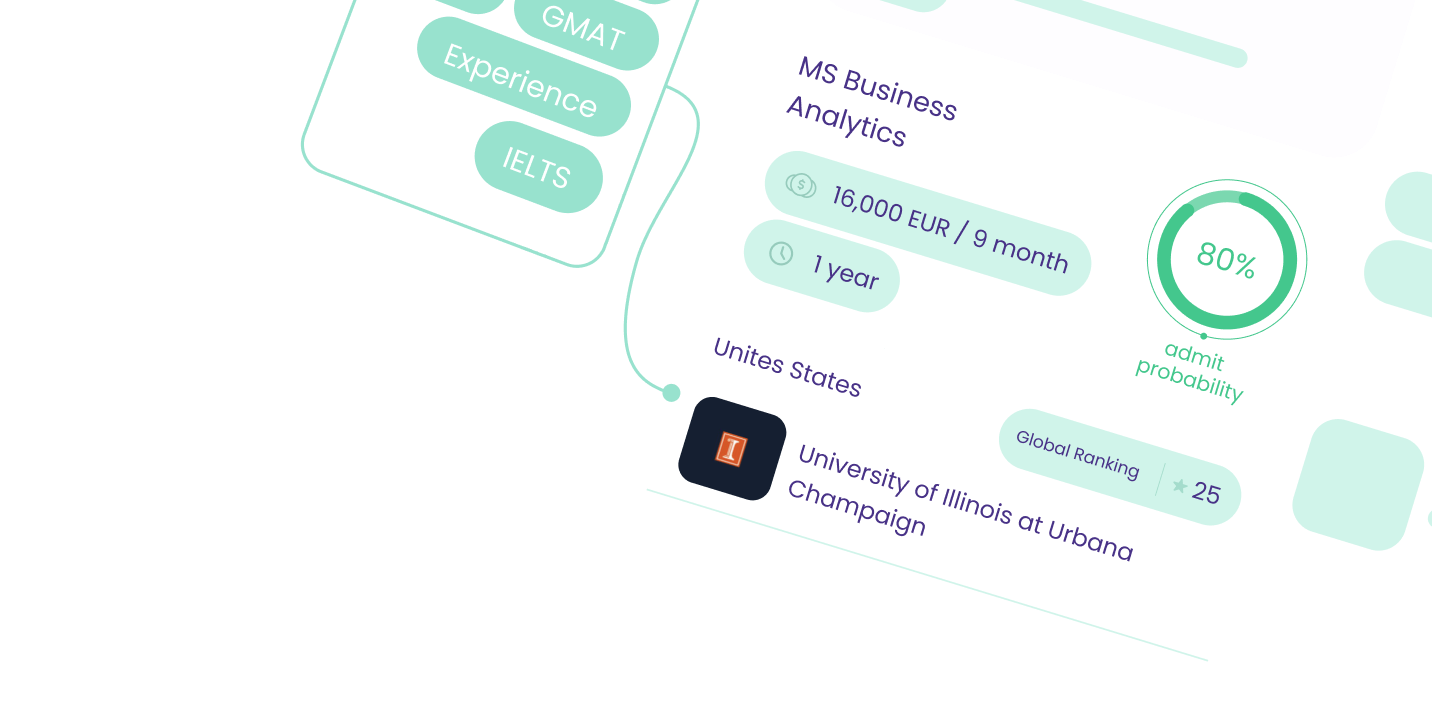Studying abroad is an incredibly valuable experience for Indian students, offering a wide range of benefits that can shape their personal and professional growth. Exposure to new cultures, academic systems, and global perspectives opens doors to a world of opportunities.
However, many Indian students face financial challenges when considering studying abroad. Tuition fees, living expenses, travel, and accommodation can be overwhelming. This often becomes a major barrier for students who aspire to pursue international education.
To support Indian students in their pursuit of global education, the government has implemented various government scholarships and financial aid programs.
In addition to government scholarships, other funding opportunities are available, such as grants, fellowships, and private scholarships.
While financial challenges may pose obstacles, the availability of government scholarships and other funding options ensures that deserving students can fulfil their dreams of studying abroad.
Let’s have a look at the best opportunities for Indian students to study abroad via scholarships.
Tips for Scholarship Applications

1. Researching and identifying suitable scholarships

Take the time to thoroughly research and identify scholarships that align with your academic goals, field of study, and personal background. Look for scholarships specifically designed for Indian students studying abroad.
2. Meeting eligibility criteria and preparing necessary documents

Carefully review the eligibility criteria for each scholarship and ensure you meet all the requirements. Prepare all the necessary documents well in advance, such as academic transcripts, recommendation letters, and proof of financial need.
3. Writing an impactful scholarship essay

Craft a compelling, well-written scholarship essay showcasing your unique qualities, experiences, and aspirations. Highlight how the scholarship will help you achieve your academic and career goals. Tailor your essay to each scholarship application and ensure it reflects your passion and motivation.


4. Seeking guidance from mentors and counselors

Reach out to mentors, teachers, and counselors who can provide guidance and support throughout the application process. They can offer valuable insights, review your application materials, and provide feedback to enhance your chances of success.
5. Submitting applications on time

Be mindful of the deadline and submit your applications well before the due date. Give yourself enough time to complete the application accurately and double-check all the requirements. Late submissions may disqualify you from consideration, so staying organised and punctual is essential.
Best Government Scholarships for Indian Students

1. Indian Council for Cultural Relations (ICCR) Scholarships

ICCR scholarships offer international students a unique opportunity to explore India’s vibrant culture while pursuing their educational aspirations. The scholarships foster cultural understanding and provide a platform for academic growth.
(i) Purpose of ICCR scholarships
Promote cultural exchange and mutual understanding between India and the world.
Provide international students with an opportunity to experience India’s rich cultural heritage while pursuing their academic goals.
(ii) Eligibility criteria
Good academic record and a genuine interest in Indian culture and traditions.
Proficiency in English or the medium of instruction for the chosen course.
Available for undergraduate, postgraduate, and doctoral programs in various fields.
(iii) Application process
Apply through the official ICCR website or the Indian embassy/consulate in your home country.
Submit application forms and required documents within the specified deadline.
A panel of experts reviews applications during the selection process.
(iv) Benefits and coverage provided by ICCR scholarships
- Full tuition fees are covered.
- Accommodation is provided.
- A monthly living allowance is given.
- Medical insurance coverage is included.
- Opportunities to participate in cultural events and seminars.
2. Ministry of Human Resource Development (MHRD) scholarships

The Ministry of Human Resource Development (MHRD) in India offers various scholarships to support the education of deserving students across different levels and disciplines. These scholarships aim to promote access to quality education and foster the development of a skilled and knowledgeable workforce.
(i) Scholarship Schemes under MHRD
A. National Means Cum Merit Scholarship (NMMS)
This scheme is designed to assist students from economically weaker sections by providing financial support for their secondary education.
B. National Scholarship Scheme (NSS)
It provides financial assistance to meritorious students belonging to economically weaker sections to pursue undergraduate and postgraduate studies.
C. Central Sector Scheme of Scholarship (CSSS)
This scheme awards scholarships to meritorious students based on their performance in the senior secondary examination, supporting their undergraduate studies.
D. Prime Minister’s Research Fellowship (PMRF)
It offers scholarships to promote research and innovation by supporting selected candidates pursuing doctoral studies in science and technology.
(ii) Eligibility requirements
Eligibility criteria vary for each scholarship scheme. Generally, applicants must be Indian citizens and fulfill specific criteria related to academic performance, family income, and category (such as SC/ST/OBC). Some scholarships also have specific eligibility conditions related to the level of education and the field of study.
(iii) Application process
Interested students can apply for MHRD scholarships through the designated online portal or offline application forms available on the MHRD website.
The application process typically involves filling out personal and academic details, uploading supporting documents, and submitting the application before the specified deadline.
The timelines for application submission and selection vary for each scholarship scheme, so staying updated through the official MHRD website is essential.
3. Ministry of External Affairs (MEA) Scholarships

The Ministry of External Affairs (MEA) in India offers scholarships to support the educational aspirations of Indian students and foster cultural exchange with other countries. These scholarships are designed to assist students seeking higher education abroad and promote academic and cultural ties between India and the global community.
(i) Types of scholarships offered by MEA:
A. Merit-based Scholarships
These scholarships are awarded to exceptional students with outstanding academic records and achievements.
B. Need-based Scholarships
These scholarships are provided to students from economically disadvantaged backgrounds, ensuring that financial constraints do not hinder their educational pursuits.
C. Cultural Exchange Scholarships
These scholarships facilitate international cultural exchange by supporting Indian students’ studies in foreign countries and international students’ studies in India.
(ii) Eligibility criteria
Eligibility requirements for MEA scholarships vary depending on the specific scholarship program.
Generally, applicants must be Indian citizens, meet the academic criteria set by the respective educational institutions, and satisfy any additional requirements outlined by the MEA for each scholarship scheme.
(iii) Application process
The application process for MEA scholarships involves completing an online or offline application form and submitting supporting documents such as academic records, recommendation letters, and a statement of purpose.
Applicants must adhere to the specified application deadlines, which may vary depending on the scholarship program and the country of study.
4. State Government Scholarships

State government scholarships play a crucial role in ensuring access to quality education for students within a specific state. These scholarships are designed to support deserving students, economically disadvantaged students, and those belonging to specific categories or communities. State government scholarships provide financial assistance, empower students to pursue higher education, and contribute to the state’s overall development by nurturing its talent pool.
(i) Popular state scholarships
A. Chief Minister’s Scholarship Scheme
Many states have their own Chief Minister’s Scholarship Scheme, which provides financial support to deserving students pursuing various courses at the undergraduate and postgraduate levels.
B. Minority Scholarships
States often offer scholarships specifically for students from minority communities, aiming to provide equal educational opportunities and promote their socio-economic empowerment.
C. Backward Class Scholarships
These scholarships target students belonging to backward classes or economically weaker sections within the state, enabling them to access higher education and break the cycle of poverty.
D. Merit-based Scholarships
State governments may award scholarships based on academic excellence, recognizing and supporting students with outstanding academic achievements.
(ii) Eligibility requirements
Eligibility criteria for state government scholarships vary depending on the specific scholarship scheme and the state in question. Common eligibility factors include academic performance, family income, residence within the state, and category or community criteria. Students must meet the specified requirements to be considered for the scholarships.
(iii) Application process
To apply for state government scholarships, students must submit an online or offline application form and supporting documents. These documents may include academic transcripts, income certificates, and other relevant certificates.
It is essential to stay updated through the official state government scholarship portals or education department websites to know the application process, deadlines, and important dates for submission.
5. Department of Science and Technology (DST) Scholarships

India’s Department of Science and Technology (DST) is passionate about advancing scientific research and technology. DST understands the importance of supporting Indian students who wish to study abroad and explore new frontiers in their fields. That’s why they offer various scholarship programs that aim to promote innovation, foster scientific collaboration, and enhance India’s scientific capabilities on a global scale.
(i) Different DST scholarships
A. DST INSPIRE Fellowship
This fellowship is like a dream come true for students with exceptional talent in basic sciences. It offers financial support for pursuing doctoral and postdoctoral research in renowned international institutions. The INSPIRE Fellowship empowers students to take their scientific aspirations to new heights.
B. DST Women Scientists Fellowship Scheme (WOS-B)
DST recognizes the importance of empowering women scientists and breaking down barriers. The WOS-B Fellowship provides opportunities for research and training abroad, allowing talented women scientists to excel and contribute significantly to the field. It’s a step towards achieving gender equality in the realm of science and technology.
C. Ramanujan Fellowship
The Ramanujan Fellowship is designed to nurture young scientists and researchers who have completed their PhDs in India. This fellowship opens doors for postdoctoral research in esteemed foreign universities or institutions, allowing recipients to expand their horizons and make a mark in their respective fields.
(ii) Eligibility Criteria and application process for DST Scholarships
To be eligible for DST scholarships, students must be Indian citizens with relevant academic qualifications. Specific requirements may vary depending on the scholarship program. Interested students can apply online, submitting their application forms and supporting documents like academic transcripts, research proposals, and recommendation letters.
It’s an exciting opportunity that comes with a straightforward application process.
(iii) Funding Opportunities for students pursuing STEM Fields
- DST scholarships primarily focus on Science, Technology, Engineering, and Mathematics (STEM) fields, which are crucial for driving innovation and progress.
- These scholarships provide financial support for research, training, and higher education abroad and offer funding opportunities for research projects, conferences, workshops, and collaborations in STEM fields. It’s a comprehensive package encouraging students to pursue their passions in these critical areas.
Give Wings to your Abroad Studies with these Scholarships

Government scholarships in India, including ICCR, MHRD, MEA, and state government scholarships, provide Indian students with valuable educational opportunities both within and abroad. These scholarships offer financial support, cultural exchange experiences, and academic growth at different educational levels.
Students can visit official program websites, government education departments, and Indian embassies or consulates for more information.
By actively seeking these opportunities, students can alleviate financial burdens, immerse themselves in diverse cultures, gain valuable experiences, and achieve academic excellence. With the support of government scholarships, Indian students can confidently pursue their dreams and succeed in their educational endeavours.


Frequently Asked Questions
Are government scholarships competitive?
Yes, government scholarships for studying abroad can be quite competitive. Since limited awards are available, many talented students are vying for them. It’s essential to keep this in mind and put in the effort to stand out from the competition.
Can I apply for multiple scholarships at the same time?
Absolutely! You can apply for multiple scholarships simultaneously as long as you meet the eligibility criteria for each one. Applying for multiple scholarships can increase your opportunities for financial support.
Who is eligible to apply for these scholarships?
These scholarships are open to Indian students who meet specific criteria. Generally, you must be an Indian citizen and fulfill specific academic requirements. Some scholarships may have additional criteria based on age, field of study, or financial need.






Comments (0)